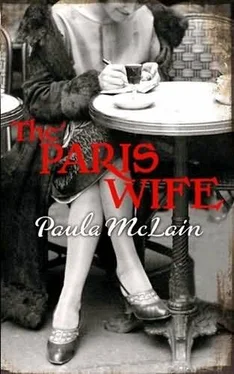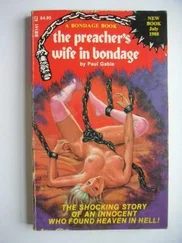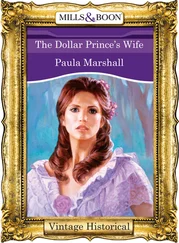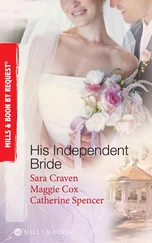He didn’t leave the bed for a week, and sometimes I just watched him sleep and knew by the look of him that he’d suffered in ways he wouldn’t be able to talk about, not for a long time. The breach between us had been terrible and the silence, too, but his time in Turkey had come to outshadow all of that. And maybe he was right that it didn’t matter. He was home now, and we were together again, and maybe it would all be all right as long as we didn’t think about it or give it any room or air.
After a week, he could get out of bed and bathe and dress and was almost ready to see friends. He went to his duffel bag and moved the notebooks aside to bring out presents rolled in newspaper and layers of cloth. He’d brought me a bottle of attar of roses and also a heavy amber necklace with big, rough beads that were threaded with black coral and silver.
“It’s as beautiful as anything ever,” I said, holding up the necklace.
“It belonged to an extremely important Russian diplomat who’s now a waiter.”
“I hope you paid him well for it.”
“I did, and got him drunk to boot,” Ernest said, nearly himself now.
I waited for him to say more about it all, but he just sat at the table and drank his coffee and asked after the newspapers.
I knew he loved me again; I could see that. No matter what each of us had felt or thought about the other in our weeks apart, that time was over now. I opened the bottle of attar of roses, which was a deep yellow and smelled like pure rose, the absolute thing. Somehow, without finding or fixing any words to it, the next part of our story had begun.
Careful now,” Ernest said. “You know you’re inviting the devil in.”
“Am I?”
“You know you are.”
“He can come then, as long as he comes this way, all in green vapor.”
We were at the Select with Pound and Dorothy, whom we’d taken to calling Shakespear. Pound had just taken on the editorship of a new literary press called Three Mountains and was keen to publish something of Ernest’s. We were all in high spirits that night, and I’d only meant to have the one glass of absinthe, to celebrate.
“You must go more slowly,” Pound said.
“Must I?” I said, but he wasn’t talking to me at all, but to the waiter pouring water over a sugar cube into the drink, which was going from a wickedly clear yellow-green to a cloudy white as the water dripped in. Absinthe was illegal in France and had been for years. So was opium, but you could find both everywhere in Paris if you knew where to look. I loved the delicate licorice taste and the way the ritual of the cube and specially perforated spoon made raindrops, sugar drops. Our waiter was doing it beautifully, I thought, but Pound grabbed the pitcher with force, taking over.
“You’re drunk, darling,” Shakespear said to him in her civilized whisper.
“I’m trying to picture you drunk,” Ernest said to her. “I’m betting you never spill a drop.”
She laughed. “If I don’t, it’s because I won’t touch absinthe.”
“It’s licorice candy and smoke,” I said.
“You’ll wish it were only that tomorrow,” Ernest said.
“Maybe, but it makes everything easier now, doesn’t it?”
“Yes, it does,” Ernest said, touching my glass with his. “So have it and to hell with tomorrow.”
“Hear, hear,” said Pound leaning forward in his rumpled tweed jacket and putting his elbows on the table. I was growing to like him more all the time-but I was generally liking everyone. I thought I might be in love with our waiter. He had the prettiest mustache, un-waxed and pure and fresh as flowers. I wanted to touch it or eat it.
“You should grow your mustache like that,” I said to Ernest, pointing not at all subtly.
“I am, dear. It’s just the same.”
I looked at him square. “So it is,” I said. “Where have you been?” And we all laughed.
Later, when we’d moved on to the Dôme, Pound started talking about the States.
“I’d never return to the Middle West,” he was saying, “I renounce it, in fact. Indiana’s full of prigs and idiots.”
“Oh, that old story,” Shakespear said in her low perfect whisper.
I looked into the long smoky mirror and touched my face, then the glass. “I can’t feel anything,” I said to Ernest. “Isn’t it wonderful?”
“Have another, Tatie,” Ernest said. “You’re very beautiful.”
Shakespear smiled at us with her curved mouth and her eyes smiled, too. “Look at our pretty lovers,” she said to Pound.
“Indiana’s always been an intellectual wasteland, mind you,” he said, and then blew a smoke ring that circled before being swallowed by the rest of it, the blue halo that was everywhere, blending and blurring. All of us breathing it in and out.
“All they have is the moral high ground,” he went on. “There’s nothing else within reach. I was useless teaching at Wabash. What did those young people with cornhusks between their ears want to hear me rant on about? Not Yeats, that’s for certain. Not poetry.”
“The actress was a small bit of poetry,” Shakespear said.
“The most scrumptious knees I’ve ever seen on a woman,” Pound said.
“Do go on,” Ernest said. “I’m getting hungry.”
“There was rain that night-it’s always raining in Indiana, intellectually speaking, you understand-and the actress… what was her name?”
“Bertha,” Shakespear said.
“Not Camille?” Ernest said.
“No, no. She wasn’t consumptive. Just didn’t want to get her hair damp. She had lovely hair. I’d suggested we go out to dinner, but then there was the matter of dampness.”
“One of my favorite problems,” Ernest said.
Everyone laughed and then Pound said, “When word got out I’d entertained her in my room, you’d think I’d murdered the girl instead of roasted a chicken.”
“Poor Ezra,” Shakespear said. “They fired him next day.”
“Poor Ezra nothing. I’d be in Indiana still, teaching poetry to stalks of corn.”
“And roasting the occasional chicken,” I said.
“Even chicken won’t save you from Indiana,” Ezra said.
Late that evening, after we’d abandoned the Dôme for the Ritz, Ernest and Pound began heatedly discussing the merits of Tristan Tzara. Pound thought the Surrealists might be onto something, possibly, if they could stay asleep long enough. Ernest thought they were idiots and they might just as well wake up so we could all move on to something else.
“I’m dropping off just listening to you all,” Shakespear said, and the two of us moved to the other side of the room and sat at a small table.
“You and Hem really are beautiful together,” she said.
“Are we?” I’d been drinking only warm water for an hour, and could finally feel my tongue.
“I wonder how that happens. Love, I mean.” She touched the sweep of her hair, still smooth and perfect.
“Don’t you and Pound have it?”
“Oh, no.” She laughed with a small puff of air. “We have what we have, though.”
“I’m not sure I understand you.”
“I’m not sure I do either.” She laughed a dark laugh and then became quiet, stirring her drink.
The weather turned wonderful that fall, and although we knew the cold, damp season would be coming soon enough, we were living deep into what we had and feeling happy and strong. Ernest was working well on his Nick Adams novel and new stories and saw so clearly the books they could be, it was almost as if they already fully existed. In our circle, everyone believed things would hit for him, and that it was only a matter of time.
“You’re making something new,” Pound told him one day in his studio. “Don’t forget that when it starts to hurt.”
Читать дальше












